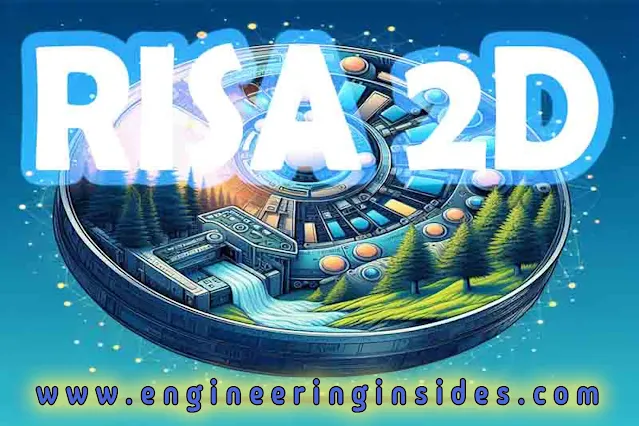RISA 2D:
RISA 2D is a simple and easy computer software which helps engineers and designers to analyze and design buildings and other construction structures. It's like a simple toolkit for people who work with buildings.
Here are a few things it can do:
TABLE OF CONTENT
Where It Is Used:
Structural Analysis: RISA 2D can help, figure out if a
building or structure is strong enough to handle the loads it might experience,
like load of people, furniture, or wind. It's like to check if your chair is strong
enough to hold you without breaking.
Design: Engineers and architects use RISA to design the
different parts of a structure, like beams and columns, to make sure they are
sufficiently safe and efficient.
Testing Ideas: This software allows engineers to try out
different ideas and see how they affect a building's stability and safety.
Basically RISA 2D is a useful tool for most engineers to construct
safe and stable buildings that can withstand the required load. It helps them to
make sure that everything stands strong and doesn't fall down in critical
conditions. So, if anyone interested in making buildings and structures, this
software is a must learn tool.
RISA 3D:
RISA 3D: RISA 3D is a big brother of RISA 2D. While RISA 2D
works in two dimensions, RISA 3D works in three dimensions. Think of RISA 2D as
drawing on a flat piece of paper, and RISA 3D as making a 3D model out of clay.
RISA 3D can handle more complex structures like skyscrapers because it
considers height as well as length and width.
Both these software tools has unique features and strengths.
Engineers and architects choose the one that works best for their specific
needs and projects. So, think of it as picking the right tool for the job, like
choosing the right brush for a painting.
Some of the advantages and Disadvantages of RISA are as
follows:
ADVANTAGES & DISADVANTAGES:
Ease of Use: RISA 2D is known for its user-friendly
interface. It is easy to learn and use, which is a good thing for engineering
students and new engineers.
Structural Analysis: It's excellent for quick structural analysis. It is easy to check if a design is safe and stable under loading or not.
Integration: RISA 2D can work well with other software like
AutoCAD, making it a useful addition to the design and planning process.
Cost-Effective: Compared to some other structural analysis
software, RISA 2D is often more budget-friendly, which is a good thing for
smaller firms or students.
Limited to 2D: As the name suggests, RISA 2D only works in
two dimensions. This means it might not be suitable for very complex 3D
structures like high-rise buildings. You'd need to use its bigger sibling, RISA
3D, for that.
Complex Projects: For extremely complex and large-scale
projects, RISA 2D may not be the most efficient choice. Engineers and
architects might need more modern software to handle these complex situations.
Learning Curve: While it's user-friendly, like any software,
there's a learning curve. Students and professionals need time to become
proficient in using RISA 2D effectively.
Updates and Support: The availability of updates and
customer support may vary. Depending on the version and where you're using it,
you might not always have the latest features or prompt support.
In short, RISA 2D is a useful tool for many structural
analysis and design works, but it has some of its limitations, especially when dealing with
complex 3D projects. Engineers and architects choose RISA for its balance
between ease of use and cost-effectiveness.
CLICK THE DOWNLOAD BUTTON BELOW TO GET RISA 2D



